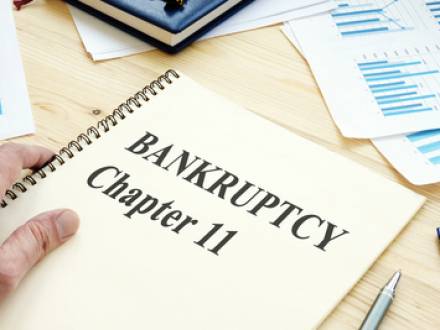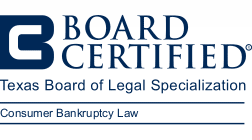Texas Two-Step Bankruptcies: What Comes Next in 2025
 A tool that was designed to split a company into two entities with one retaining assets and the other saddled with liabilities is often known as the "Texas Two-Step" bankruptcy strategy, but it is now on uncertain footing. The maneuver relied on federal Chapter 11 protections, along with Texas merger statutes.
A tool that was designed to split a company into two entities with one retaining assets and the other saddled with liabilities is often known as the "Texas Two-Step" bankruptcy strategy, but it is now on uncertain footing. The maneuver relied on federal Chapter 11 protections, along with Texas merger statutes.
However, after high-profile defeats and congressional backlash, the Texas Two-Step may be on the path to losing its viability. Both the judiciary and lawmakers are indicating limits on just how far companies can separate themselves from product liability and mass tort claims.
If you are considering Chapter 11 business bankruptcy, usually reserved for corporations, partnerships, and specific individuals, it is wise to consult with an experienced Fort Bend, TX bankruptcy lawyer. Before you commit to filing under Chapter 11, you must understand how these potential new changes could affect your filing.
What Are the Benefits of Chapter 11 Bankruptcy?
Chapter 11 allows a business to remain in operation, reorganize its debts, and potentially return to making a profit. The automatic stay gives debtors a pause from collection efforts, and Chapter 11 allows business owners to rid themselves of burdensome contracts or leases, adjust interest rates, and reduce debts. Unlike Chapter 13, individuals with extremely high levels of debt can file under Chapter 11.
What Was the Texas Two-Step Designed to Do – and Why Is It Controversial?
The Texas Two-Step originated under the Texas Business Organizations Code Sections 10-001-10.008. Texas became the jurisdiction of choice for these divisive mergers because of a unique state law that allows the division of corporate assets and mass tort liabilities into separate entities. This enabled solvent parent companies to use the bankruptcy system to resolve mass tort claims while insulating their core business and valuable assets.
The shell company, now burdened with excessive liabilities and limited assets, files for Chapter 11 bankruptcy, while the parent company is shielded from any future liability while keeping the company’s assets. Unlike Delaware, which allows divisive mergers only for limited liability companies, Texas law applies to all business entities.
The use of the Texas Two-Step is highly controversial and has faced a significant amount of pushback, largely from federal courts. As an example, Johnson & Johnson’s attempts to resolve thousands of talcum powder lawsuits through the Texas Two-Step have been rejected multiple times by federal courts, who say it is not a "good faith" use of the bankruptcy system. Using the Texas Two-Step essentially merges Texas corporate law with federal bankruptcy relief.
The Courts Push Back Against the Texas Two-Step
Texas bankruptcy courts have begun applying increased "good faith" scrutiny under federal bankruptcy laws as they make distinctions between legitimate divisional reorganizations and strategies for debt avoidance. In 2025, there have been federal legislative "solutions" in the form of proposed bills like "No Taxpayer Bailouts for Corporate Abuse Act" and "Ending Corporate Bankruptcy Abuse Act." Some members of the Senate and House committees have called the Texas Two-Step nothing more than a bankruptcy loophole and are considering possible amendments to the federal bankruptcy statute regarding fraudulent transfer.
Are There Any Alternatives to the Texas Two-Step?
Some potential alternatives to the Texas Two-Step during Chapter 11 bankruptcy include:
- Settlement trusts under Section 524(g) for mass torts
- Prepackaged Chapter 11 filings with negotiated creditor participation
- The more traditional spin-offs with indemnity clauses
Likely, there will at least be some significant changes to the Texas Two-Step, if not a full retreat from the practice.
Contact an Austin County, TX Chapterkruptcy Lawyer
As the legal landscape continues to change, Texas businesses considering restructuring before filing for Chapter 11 should not do so without the guidance of a Fort Bend, TX bankruptcy attorney from The Fealy Law Firm, PC. Attorney Fealey can help assess risk, structure transactions correctly, and prepare for the potential reforms to federal bankruptcy laws and the Texas Business Organizations Code. Attorney Fealey is focused on helping good people get through hard times as she guides them through the bankruptcy process. Call 713-526-5220 to schedule your free consultation.












